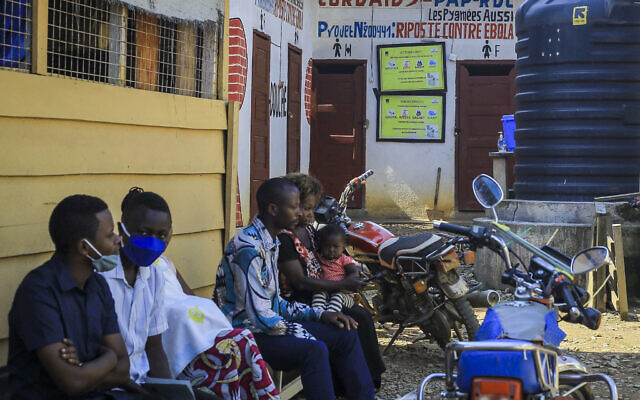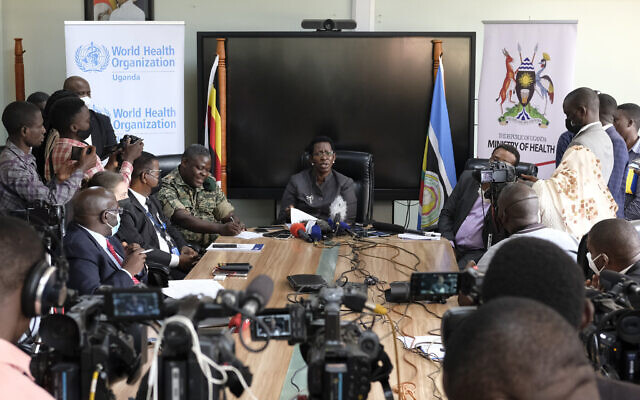The Health Ministry warned Israelis on Friday against traveling to certain parts of Uganda due to an Ebola outbreak in the East African country that has already claimed several lives.
The Uganda health ministry reported an outbreak of the Sudan Ebola strain last week. The outbreak is believed to have started in Uganda’s Mubende District, whose main town lies along a highway into the capital, Kampala.
A total of 50 confirmed and suspected cases have been reported so far, with six confirmed deaths and 18 deaths suspected to have been caused by the virus.
The Israeli statement noted that cases have since been identified in nearby districts, though it appeared confined to Uganda as of Friday.
The Health Ministry advised Israelis against traveling to Mubende or to any other district in the country that has registered active patients in the current outbreak, which includes the Kassanda district lying between Mubende and Kampala.
Get The Times of Israel's Daily Edition by email and never miss our top stories
There is no proven vaccine for the Sudan strain of Ebola, and “it’s very critical at this point that we treat this outbreak as serious because we may not have the advantage that we have gained in terms of the advancement in medical countermeasures,” said Dr. Patrick Otim, an epidemiologist with the World Health Organization in Africa.
Ebola, which is spread by contact with bodily fluids of an infected person or contaminated materials, manifests as a deadly hemorrhagic fever. Symptoms include fever, vomiting, diarrhea, muscle pain and at times internal and external bleeding. Its incubation period can last up to 21 days.
Israelis traveling to those areas were asked to avoid physical contact with confirmed or deceased patients and their bodily fluids and secretions, such as blood, saliva, vomit, urine and stool, as well as with any item that came in contact with a patient.
Other recommendations included avoiding eating raw meat, crowded gatherings and unprotected sex and maintaining personal hygiene.

Patients wait outside to be treated at the Butsili health center in Beni, eastern Congo, October 9, 2021. (AP Photo/Al-hadji Kudra Maliro)
People who experience fever, headaches, muscle aches, vomiting, diarrhea, pain in the abdomen, or unexplained bleeding during their stay in Uganda or for 21 days after returning to Israel, were asked by the ministry to immediately enter quarantine and notify their doctor.
Uganda first reported a confirmed Ebola case as part of the newest outbreak on September 20.
Uganda has had multiple Ebola outbreaks, including one in 2000 that killed more than 200 people.

Permanent Secretary of Uganda’s Health Ministry Diana Atwine, center, confirms a case of Ebola in the country, at a press conference in Kampala, Uganda, September 20, 2022. (AP Photo/Hajarah Nalwadda)
Last month authorities in Congo said a new case of Ebola in the eastern city of Beni was linked to a previous outbreak.
Since it appeared, Ebola has killed more than 15,000 people.
The biggest epidemic hit Western Africa between 2013 and 2016, killing 11,000 people.
Agencies contributed to this report.


